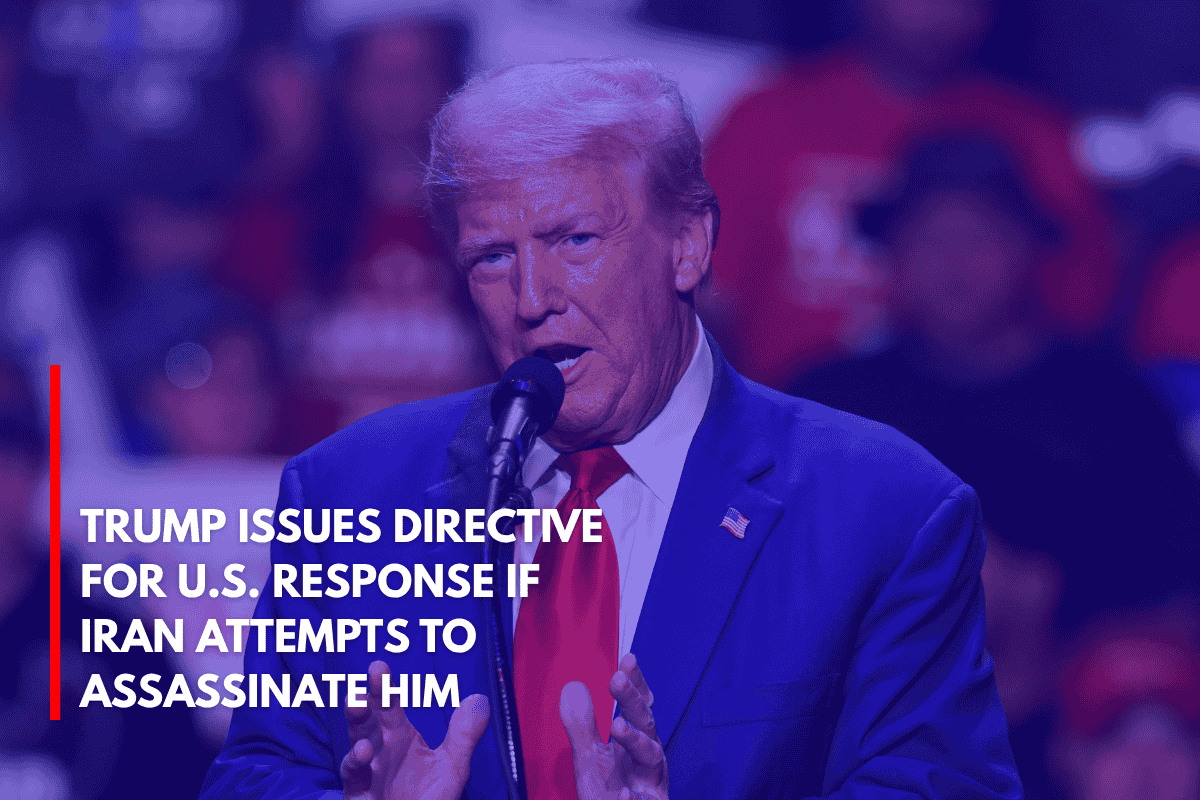Washington, D.C. – President Donald Trump has reportedly issued a clear directive to U.S. officials in the event that Iran attempts to assassinate him, a move made well before he authorized airstrikes on Iranian nuclear sites last Saturday.
The strikes targeted Fordow, Natanz, and Esfahan—key Iranian nuclear facilities—as part of an effort to thwart Iran’s nuclear ambitions. This marks a significant escalation in efforts to curb Tehran’s nuclear program.
Trump Declares Military Success After Strikes
In a national address with Vice President JD Vance, Secretary of State Marco Rubio, and Defense Secretary Pete Hegseth by his side, Trump declared:
“Our objective was the destruction of Iran’s nuclear enrichment capacity and a stop to the nuclear threat. Tonight, I can report to the world that the strikes were a spectacular military success.”
Trump further added:
“Iran’s key nuclear enrichment facilities have been completely and totally obliterated. If peace does not come quickly, we will go after those other targets with precision, speed, and skill.”
Rising Concerns Over Potential Iranian Retaliation
Since the airstrikes, concerns about Iran’s potential response—including threats to Trump’s life—have grown. This isn’t the first time Iran has been linked to threats against the President.
According to Mirror US, back in 2020, Trump made the controversial decision to launch a drone strike that killed Qassem Soleimani, the leader of the Quds Force in Iran’s Revolutionary Guards Corps. The strike sparked widespread backlash, with some calling it an act of international terrorism.
Intelligence Reports on Assassination Plots
U.S. intelligence agencies had gathered evidence suggesting that Iran was considering assassination attempts on Trump, dating back to his presidential campaign in 2020.
In September 2024, Trump revealed that there had been significant death threats against him from Iran. However, two attempted attacks on his life last year have not been directly linked to Iranian involvement.
In a related case, a Pakistani national with alleged ties to Iran was accused of attempting to carry out a murder-for-hire plot targeting U.S. government officials.
These assassination plots have raised serious concerns for Trump, his administration, and the global community. As a result, a contingency plan has been put in place in case such an attack occurs.
Trump’s Contingency Plan: “If They Do It, They Get Obliterated”
In February, during a press conference in the Oval Office, Trump commented on how the U.S. would respond if Iran attempted to assassinate him:
“If they did that, they would be obliterated,” Trump warned. “That would be the end. I’ve left instructions. If they do it, they get obliterated. There won’t be anything left.”
Israel’s Role and Increased Tensions with Iran
Israeli Prime Minister Benjamin Netanyahu has used these assassination plots to emphasize the growing threat to Trump, calling him Iran’s number one enemy.
Netanyahu told Fox News:
“He killed Qasem Soleimani. He made it very clear, including now, ‘You cannot have a nuclear weapon, which means you cannot enrich uranium.’ He’s been very forceful, so for them, he’s enemy number one.”
Trump’s stance on Iran’s nuclear program has been clear: he insists that Iran must not be allowed to develop nuclear weapons. He also directed his advisers to initiate a devastating strike on Iran if they succeeded in assassinating him.
U.S. Executive Order to Increase Pressure on Iran
In response to growing threats, Trump signed an executive order designed to exert “maximum pressure” on Iran through sanctions and by investigating Iranian proxies tied to the U.S. The directive included several key demands:
Prevent Iran from obtaining nuclear weapons and intercontinental ballistic missiles.
Disrupt Iran’s terrorist networks.
Restrict the expansion of Iran’s missile programs and military capacities.











Leave a Reply